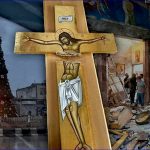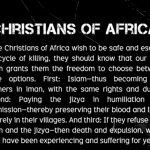By Giorgos Theocharis – Vima Orthodoxias –
The Monastery of St Catherine in Crisis and Its Property at Risk of Being Lost
The negotiations concerning the future of the historic Holy Monastery of St Catherine of Mount Sinai reveal, according to ecclesiastical and diplomatic circles, an unprecedented level of governmental inertia on the part of Greece.
Despite repeated warnings about Egypt’s actions, Athens appeared without a strategic plan, leaving the Sinai Brotherhood exposed and divided.
The recent visit of the Secretary General for Religious Affairs, Mr Giorgos Kalantzis, to Sinai—rather than defusing tensions—highlighted the institutional weakness of the Greek state in defending the interests of one of the world’s most significant Orthodox monuments. Well-informed sources note that the Mitsotakis government “learned at the last minute” about Cairo’s behind-the-scenes moves and is now attempting, retroactively, to compensate for a diplomatic gap created by the lack of coordination between the Ministry of Foreign Affairs and the Ministry of Education and Religious Affairs.
A Divided Brotherhood and Lost Opportunities
Although the Monastery “turned a page” after the election of the new Archbishop of Sinai, Pharan, and Raitho, Archbishop Symeon, tensions within the Brotherhood remain high. Differences among the monks who supported various candidates during the election have not been bridged. Instead of institutionally strengthening the new leadership, the Greek government—according to ecclesiastical sources—limited itself to “insufficient symbolic gestures.”
Prime Minister Kyriakos Mitsotakis, despite being informed of the importance of the Greece–Egypt agreement, failed to secure the necessary commitments from President al-Sisi. Foreign Minister George Gerapetritis is said to have handled the issue “with characteristic carelessness,” allowing Egyptian diplomacy to impose terms that do not serve the interests of the Greek Church.
Cairo’s Trap Agreement
Egypt’s verbal assurance that a deal would be reached with the Monastery—supposedly to secure its rights—appears to be a double-edged sword. Sources close to the talks report that Cairo insists on a regime of “enhanced right of use,”avoiding any recognition of full ownership by the Monastery. In simple terms, the Egyptian state retains ownership, granting the Monastery only management rights—a framework resembling supervision and control.
Athens, despite public statements about “respecting tradition and autonomy,” has quietly accepted this proposal. Diplomatic sources note that the Greek Foreign Ministry avoided exerting pressure or requesting explicit protective guarantees, effectively leaving the initiative entirely to Egypt.
The Citizenship Impasse and Monks Without Rights
Another major obstacle is the requirement that the Archbishop obtain Egyptian citizenship in order to be legally authorized to sign the agreement. Senior officials admit that “the process was severely delayed” because the Greek side failed to secure President Sisi’s approval in time.
The Monastery’s request that each newly elected Archbishop automatically receive citizenship was rejected, and Egypt remains unmoving regarding the monks’ longstanding request for long-term visas.
“It is as if they are treating them like visitors in the very place where they have prayed for decades,” a senior ecclesiastical official told Vima Orthodoxias, adding that the Greek government did not react even at the level of formal protest.
“Greece Watches in Embarrassment”
A high-ranking church source similarly stated to vimaorthodoxias.gr that “from the moment Egypt took legal action over the Monastery’s ownership, Greece simply watched in embarrassment.” According to the same source, “the appropriate diplomatic steps were never taken,” and Greece “seems to be gradually losing one of its most historic spiritual footholds in the Middle East.”
The case of the Sinai Monastery has now become a test of credibility for Greek diplomacy. If the government does not undertake immediate high-level initiatives, the historic Sinai Brotherhood risks being transformed from a bearer of Orthodox tradition into a subject of inter-state management, with the Sinai Fathers paying the price for Athens’ political inaction.
____________________
Translated from:





